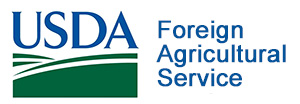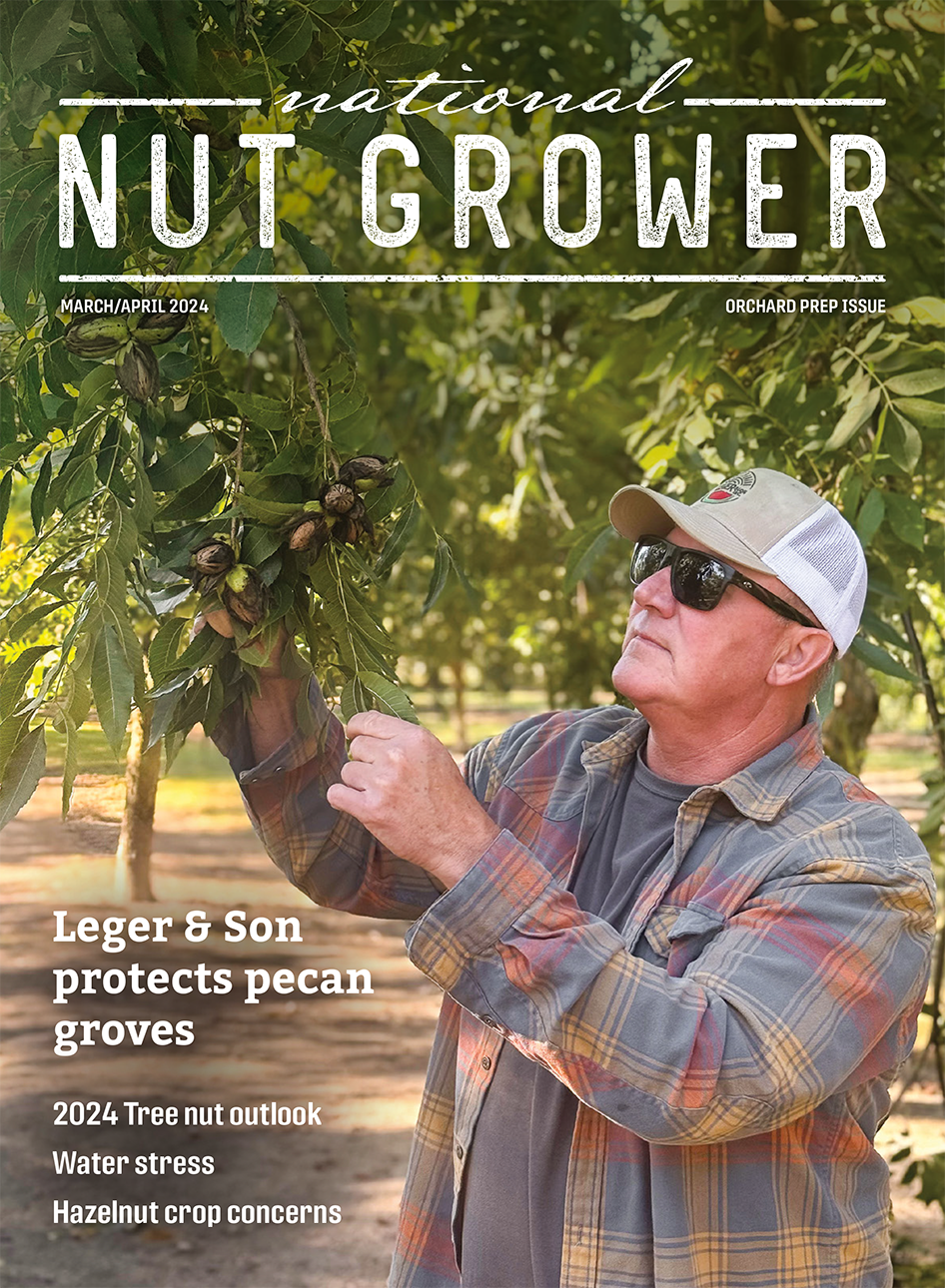Jan/Feb 2023
A quick chat with USDA Foreign Agriculture Service Associate Administrator Clay Hamilton
As consumers and members of the tree nut industry, growers and allied partners can often see firsthand the efforts made to build domestic demand for high-value crops. But, exports are a tremendous factor in the success of this industry. Part of this is building relationships with other nations who are expanding their own acreage and industries in these crops.
National Nut Grower sat down with USDA Foreign Agriculture Service Associate Administrator Clay Hamilton to learn more about his recent trip to Spain on behalf of the almond industry.
National Nut Grower: What was the purpose of this trade mission to Spain?
Clay Hamilton: We kind of married marketing with our policy work. I led 21 companies, representatives from 11 state departments of agriculture and 11 trade organizations. On the policy side, we had meetings with the Spanish government, trade associations and farmers’ associations in an effort to really build bridges and talk about where we have things in common, and how we can resolve differences.
government, trade associations and farmers’ associations in an effort to really build bridges and talk about where we have things in common, and how we can resolve differences.
The marketing side, which is really the meat of the program, is where we created individual, business-to-business meetings for those companies. Out of the 21 companies, we had over 300 meetings for them. We’re very anxious to see what the outcome is. These trade missions, we’re doing 6-7 a year, and annual sales are predicted to be anywhere from $10-30 million per trade mission.
We had a great reception; people were very pleased with the U.S. product, and our U.S. exporters were really happy with the meetings that they had.
NNG: What are some of those commonalities and differences?
CH: I’ve served in six different countries, I’ve traveled a lot, and I grew up on a farm. The thing that always impresses me is that farmers, wherever you go, all want to produce a quality product, they want to take care of their family, and they want to take care of their land. Whenever we can get our farmers in the U.S. talking with farmers overseas, it’s amazing the commonalities and the camaraderie that they have. Farmers always complain about the same three things: The weather, the prices and the government. So they have instant things in common.
When we were in Europe, it was very interesting to see that a lot of our perceptions on how we need to proceed on climate change and sustainability, the improvements we need to make, they agree, and we’re all in lockstep on what we need to do. There’s just a difference in opinion as to how to get that, based on the government. We found a lot of interesting responses from the people we met with that they pretty much agree with how we see things. So that’s very, very encouraging.
NNG: Do you see the U.S. adopting more foreign practices, or vice versa?
CH: [Other countries] have to work within their systems and their regulations, but one of the things that we’re doing as USDA is trying to help stimulate the conversations globally. There’s the Agriculture Innovation Mission for Climate, which we have a tremendous number of countries signed on to commit to investing into climate change research, the Sustainable Productivity Growth Coalition, which is another group of countries committed to sharing information. What we want to do is, for example, with the [commodity boards] is help take their research and practices and ensure it globally, so that other farmers can learn from that. We didn’t get to this situation individually as a country, we’re not going to get out of it by ourselves. We want to learn from them, too. We need to be partners on how we can all become more sustainable. We’ve got 8 million people in the world now, and we’ve got to produce a lot of food to feed them.
NNG: How does this affect U.S. growers, and how will our growers benefit?
CH: People don’t realize that 20% of U.S. ag production is exported. For certain commodities, like almonds and walnuts, it’s up to 70% to 80%. So the best way it was described to me is, one company said, “Exports are a profit margin; what we sell domestically pays the bills, but what we sell overseas is where we see the profit that we can reinvest into our company.”
We sell a lot of things overseas that we don’t want to consume here. We can also sell some things at a premium because it’s of a high quality and has the great image that U.S. products have. All of that really helps contribute to the stability and the growth of our ag sector.
NNG: Should we be concerned about market share shifting to another country?
CH: It’s something that we have to be aware of. We’ve seen a little more turmoil in global markets over the last couple of years than we’ve traditionally seen. COVID certainly didn’t help, as well as some of the trade tensions that we’ve got now. But shifting of markets is something we always have to be aware of. That’s what we do at Foreign Ag Service; we work with trade associations to help them forecast where the markets are, what to expect and how to be able to adapt. Because we want to keep exporting. We’ve got fantastic products; we want to do our share to feed the world. That just takes a lot of research and effort to make sure that we’re positioning ourselves in the proper place for the future.
NNG: What is it that you’re expecting or hoping to see happen?
CH: I think sustainability is going to become a growing requirement for exports. That’s why we started the Partnerships for Climate-Smart Commodities program to try to get ahead of that. We’re doing a lot of work internationally in multilateral organizations to try to ensure that we’re using the same definitions for sustainability, for how we’re going to prove sustainability, so that we can continue to export.
We want free markets, not just for us, but for all countries. And we want to make sure that decisions are based on science. Because those are the only ways we can ensure that they’re consistent, and that everybody knows how to meet those requirements. So we’re doing a lot of work as a government to try to do that.
I think the U.S. is one of the most sustainable countries in the world. And we don’t get the credit we deserve for that. People overseas hear about factory farms, and they hear about fast food and other things, and they don’t understand the commitment and the passion that U.S. agriculture has for high quality, safe products.
I think that’s something we want to work more with the trade associations and State Departments of Agriculture on, to get that message out to just let people know what a great job we’re doing.







